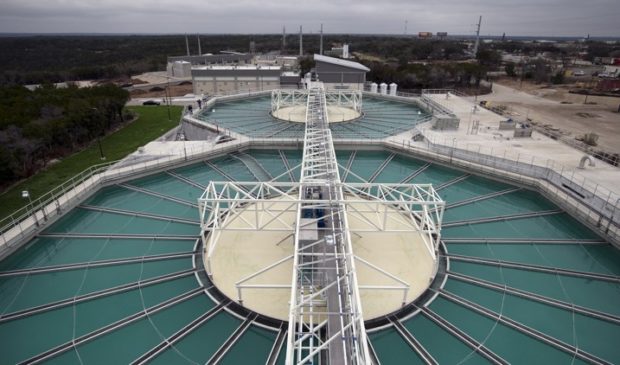Improvements, hiring at Austin Water likely remedies for boil-water notice
Friday, April 1, 2022 by
Chad Swiatecki The city appears likely to approve a special budget item that will pay for more than a dozen new hires and operational software improvements at Austin Water.
City Council’s Austin Water Oversight Committee voted unanimously Thursday to support the recommendations of staff that were the result of the investigation into what caused a three-day boil-water notice in early February for customers of the utility. That vote moves the proposed expenditure forward for a vote at a future Council meeting.
City leaders had considered making a bill credit to customers part of the after-action steps, but recent memos from Austin Water have supported making investments in staff, equipment and software instead. The cost for those improvements, including 16 full-time positions, is expected to be around $2 million.
Earlier this week, Austin Water released the report detailing its internal investigation into how the turbidity, or cloudiness, of water coming out of the Ullrich Water Treatment Plant increased far past allowable levels on the evening of Feb. 4, leading to the shutdown of the plant and the boil-water notice the next day.
The report found the three-person overnight team monitoring the plant overlooked notices of equipment issues that needed their attention, misdiagnosed the cause of the increasingly cloudy water, and failed to inform supervisors of the problems that accumulated over the course of the 12-hour shift that ended at 7 a.m.
When the next day’s team took over that morning, they quickly noticed and diagnosed the problems and the plant was shut down in about two hours.
Stephanie Sue, water treatment operations manager for the utility, said the incident shows a clear need for Austin Water staff to work on training around following standard operating procedures.
“It is sad and it’s frustrating that the inaction by this team that night was the direct cause of the boil-water notice and impacted the lives of the citizens of the city of Austin,” she said. “And above that it’s unfair that the staff that is doing great quality work and are hard-working at my plant are now having to suffer the intense scrutiny that’s being brought by this boil-water notice.”
It was the city’s third boil notice since late 2018.
Sue said that changes to practices including making it possible for supervisors to remotely check in on plant monitors will help prevent a repeat of the episode. But she said a severe shortage of workers and open positions has put excess pressure on her staff.
“The business of running a water treatment plant is not something we can automate. It’s not something robots can do, so it’s something where we have to rely heavily on our people and invest in our people to be successful,” she said.
“We are very challenged with our workforce right now. We have numerous vacancies and we have a market study happening right now that’s shown on the operations side that we are not competitive with other utilities, not to mention other businesses in Austin that pay more for less responsibility.”
Mayor Pro Tem Alison Alter said she wants Sue and other water utility leadership to report back with a timeline for the planned improvements and hiring, with details about other possible information gaps that need to be addressed.
“The piece that confounds me is with the supervisory side, in particular in 2022 there are systems that enable alarms to be sent to supervisors but we didn’t have autonomous notifications going out to supervisors,” she said. “Why didn’t we have that set up, and where else don’t we have that set up where we need it in our plant?”
Following the disclosure that a team member involved in the problem had said “weak crews talk to supervisors” as an explanation for why there was no notification of the deteriorating conditions, Council Member Ann Kitchen said training and work to change culture and attitudes may be necessary.
“I’m trying to get an idea if what we’re talking about is a lack of knowledge or a lack of recognition of what the issue was, as opposed to not understanding the importance of bringing in supervisory assistance,” she said. “I would hope that drilling down into that kind of an attitude or culture can be addressed, in addition to what’s going on just with the knowledge base.”
The Austin Monitor’s work is made possible by donations from the community. Though our reporting covers donors from time to time, we are careful to keep business and editorial efforts separate while maintaining transparency. A complete list of donors is available here, and our code of ethics is explained here.
You're a community leader
And we’re honored you look to us for serious, in-depth news. You know a strong community needs local and dedicated watchdog reporting. We’re here for you and that won’t change. Now will you take the powerful next step and support our nonprofit news organization?






